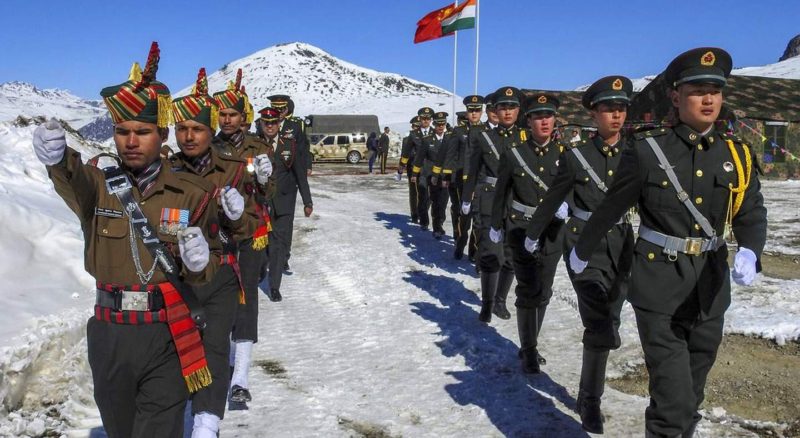India and China Agree to Hold Military Talks at LAC Soon

In a significant development, India and China have reached an agreement to engage in upcoming military talks at the Line of Actual Control (LAC). This decision comes as both countries strive to improve communication and find common ground amidst their ongoing border disputes.
The LAC, a de facto border between India and China, has been a historical point of contention between the two nations. The border conflict dates back to the 1950s when China began asserting its territorial claims in the region. In 1962, a full-scale war broke out between the two countries, resulting in significant casualties on both sides.
In recent years, tensions have escalated along the LAC due to differing interpretations of the border alignment. The 2020 Galwan Valley clash, which resulted in the loss of lives on both sides, further strained the bilateral relations. However, both countries have expressed their commitment to resolving the issues through diplomatic means and avoiding any further escalation.
The decision to hold military talks at the LAC is a positive step towards de-escalation and fostering open lines of communication. The historical significance of such negotiations cannot be understated. Throughout history, India and China have engaged in numerous diplomatic discussions and negotiations to address border disputes and maintain peace in the region.
One noteworthy instance of such historical talks is the 1993 Agreement on the Maintenance of Peace and Tranquility along the LAC. This agreement established various confidence-building measures to prevent incidents along the border and promote bilateral cooperation.
Another significant historical event is the signing of the 2005 Agreement on the Political Parameters and Guiding Principles for the Settlement of the India-China Boundary Question. This agreement reiterated the commitment of both nations to resolve the boundary dispute peacefully and through friendly consultations.
By drawing upon the lessons of history, India and China can find a path forward in resolving their border disputes. The upcoming military talks at the LAC hold the potential to build trust, enhance understanding, and establish mechanisms for better border management.
It is important to acknowledge that the road to resolving these complex issues is long and challenging. However, by learning from the past and engaging in meaningful dialogue, India and China can lay the foundation for peaceful coexistence and mutually beneficial relations.
- Galwan Valley Clash (2020): In June 2020, a violent clash between Indian and Chinese troops took place in the Galwan Valley, resulting in casualties on both sides. Following the incident, India exhibited restraint and focused on diplomatic negotiations to defuse tensions.
- Diplomatic Engagements: India has consistently engaged in diplomatic talks with China to address border disputes. Multiple rounds of military and diplomatic discussions, including the Working Mechanism for Consultation and Coordination (WMCC) on India-China border affairs, have taken place to maintain peace and stability.
- Strengthening Border Infrastructure: India has invested significantly in strengthening its border infrastructure along the Line of Actual Control (LAC). This includes the construction of roads, bridges, and airfields to enhance connectivity and ensure better surveillance capabilities.
- International Support: India has actively sought international support and solidarity in condemning any aggressive actions by China. Various countries, including the United States, Japan, Australia, and several European nations, have expressed support for India’s stance on maintaining peace along the border.
